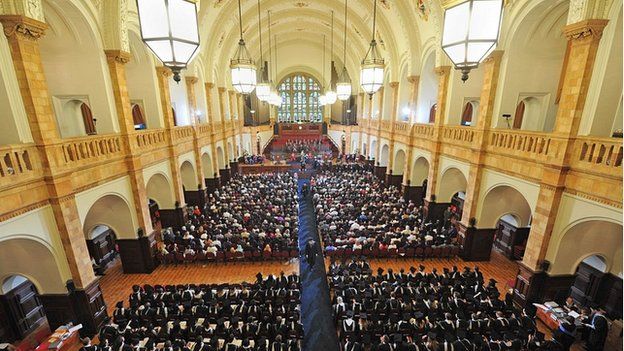Nick 0208 Ldn
News 24
- Joined
- Mar 10, 2004
- Messages
- 23,721
Scientists use X-rays to decipher charred Vesuvius scrolls
New technology finds Greek text on papyrus, allowing investigation of hundreds of ancient scrolls that were damaged in 79 AD
Reuters
20 Jan 2015
The contents of hundreds of papyrus scrolls that were turned into charcoal during the eruption of Italy's Mount Vesuvius in 79 AD - one of the great natural disasters of antiquity - have long remained a mystery. That soon may change.
Scientists said on Tuesday a sophisticated form of X-ray technology has enabled them to decipher some of the writing in the charred scrolls from a library once housed in a sumptuous villa in ancient Herculaneum, a city that overlooked the Bay of Naples.
The library was part of what's called the Villa of the Papyri, which may have belonged to Julius Caesar's father-in-law. Other libraries from antiquity have been discovered but this is the only one that had its scrolls still present.
Along with its sister city Pompeii, Herculaneum was buried by the eruption. The scrolls were carbonised by a blast of gas, hotter than 300C, ending up looking like burned logs.
Roughly 1,800 of the delicate and brittle scrolls were unearthed in the 1750s. Some have been deciphered. Most have not. Methods used over the years to unroll them or separate their layers have destroyed many.
Carbonised papyrus and the black charcoal ink used in the scrolls have very similar compositions, making it tough to make out the writing using even advanced scanning methods. But these researchers used a technology similar to CT scans, called X-ray Phase Contrast Tomography, to decipher the writing while leaving the scroll rolled up.
"They are extremely fragile because they are, more or less, only pieces of charcoal," said Emmanuel Brun of the European Synchrotron Radiation Facility in Grenoble and Ludwig Maximilians University in Munich, who helped lead the study.
The method was used on one intact charred scroll as well as scroll fragments, added Vito Mocella of the Institute for Microelectronics and Microsystems, part of the National Council of Research in Naples.
The researchers determined the writing was in ancient Greek and the intact scroll may be a text written by 1st century BC philosopher Philodemus.
While this study was not intended to reveal the scrolls' full contents, Dr Mocella said there were plans to use the technology to decipher the hundreds of remaining scrolls. Experts have hoped these may contain famous lost ancient works.
"We're very excited about this possibility because we know the immense value for the study of ancient Greek and Latin civilization," he said.
The intact scroll used in the study, published in the journal Nature Communications, was given to Napoleon Bonaparte as a gift in 1802, said Dr Brun.
http://www.telegraph.co.uk/news/wor...ays-to-decipher-charred-Vesuvius-scrolls.html
This is the only remaining such library from antiquity, so hopefully the above method will enable researchers to uncover something unlike previous discoveries.
It made me wonder though, what would remain of the ideas and words of the present era centuries or millennia from now? Does the digitised nature of our media lend itself to such longevity? On the other hand, it is easier to store vast amounts of date on portable devices, the question being one of access.








